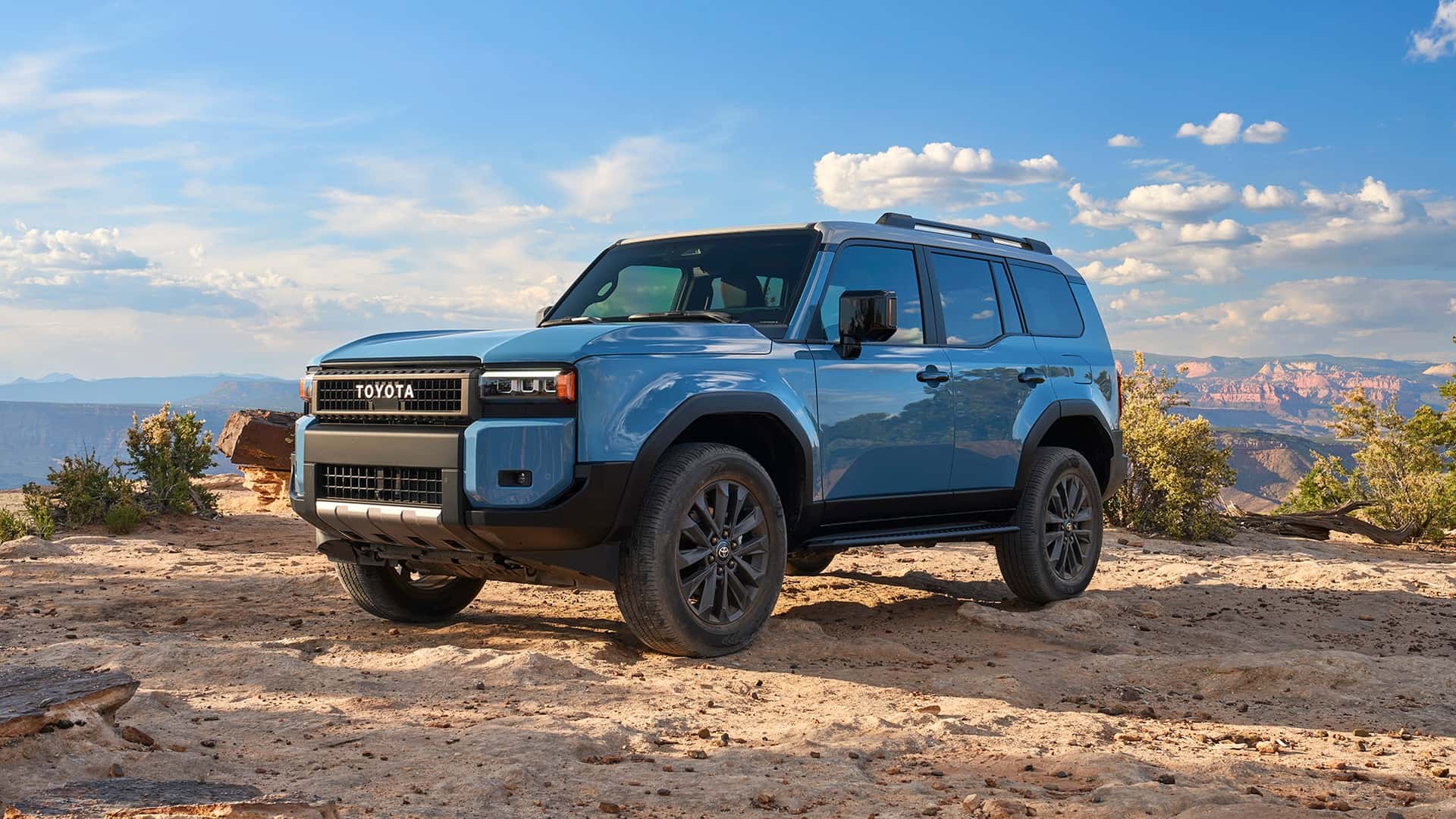
The newly revealed US-bound Toyota Land Cruiser 250-Series retains the beefy appeal of its predecessors, albeit with a retro twist, and seems to have garnered positive reactions from enthusiasts. But how will it age in an era of increasingly strict emissions and electric cars?
As of now, Toyota has no immediate plans of introducing plug-in hybrid (PHEV) or fully electric (BEV) versions of the retro-styled SUV. Even though its turbocharged 2.4-liter engine will be paired with a 48-horsepower electric motor (housed within the eight-speed transmission), it’s safe to assume that the e-motor will have a diminutive impact on emissions. The Land Cruiser will likely remain a gas-guzzler.
But Toyota is considering PHEV, fuel-cell, or an all-electric version of the iconic SUV, as per a new Automotive News report. Incorporating any of the alternative propulsion systems into the TNGA-F platform would have pros and cons, said the vehicle’s chief engineer Keita Moritsu. Although Toyota engineers have reportedly started brainstorming future electrified variants, as per the report.
The capabilities of a fuel-cell version would be ideal for long-range driving and towing, but limited infrastructure could hinder its wider adoption, said Moritsu. If anyone can master a fuel-cell EV, it’s Toyota, as the brand was among the first automakers to introduce the technology, for which it owns over 5000 patents. Toyota deemed the patents so important that it opened up the technology for royalty-free use until the end of 2020.
Moreover, the ladder frame platform isn’t designed to accommodate hybrid and fully electric powertrains and will have to be modified should Toyota choose to go green with the Land Cruiser. The brand’s existing EVs like the bZ4X and the Lexus RZ use tweaked versions of the TNGA. Although Toyota CEO Koji Sato outlined three steps for a successful transition to EVs in April 2023, which included a purpose-built EV platform.
But the questions remain: Would the Land Cruiser incorporate a modified TNGA platform, or would the upcoming BEV-only architecture be scalable enough for the SUV?
Many consider Toyota a laggard in the EV race. But the Japanese automaker has recently mounted a multi-front effort to plug the gap to rivals. The brand plans to launch 10 new EVs by 2026, including a three-row full-size electric SUV that will be manufactured at its Georgetown, Kentucky plant. It has also claimed a breakthrough in solid-state battery technology – a pack with 745 miles of range could be in the pipeline.

